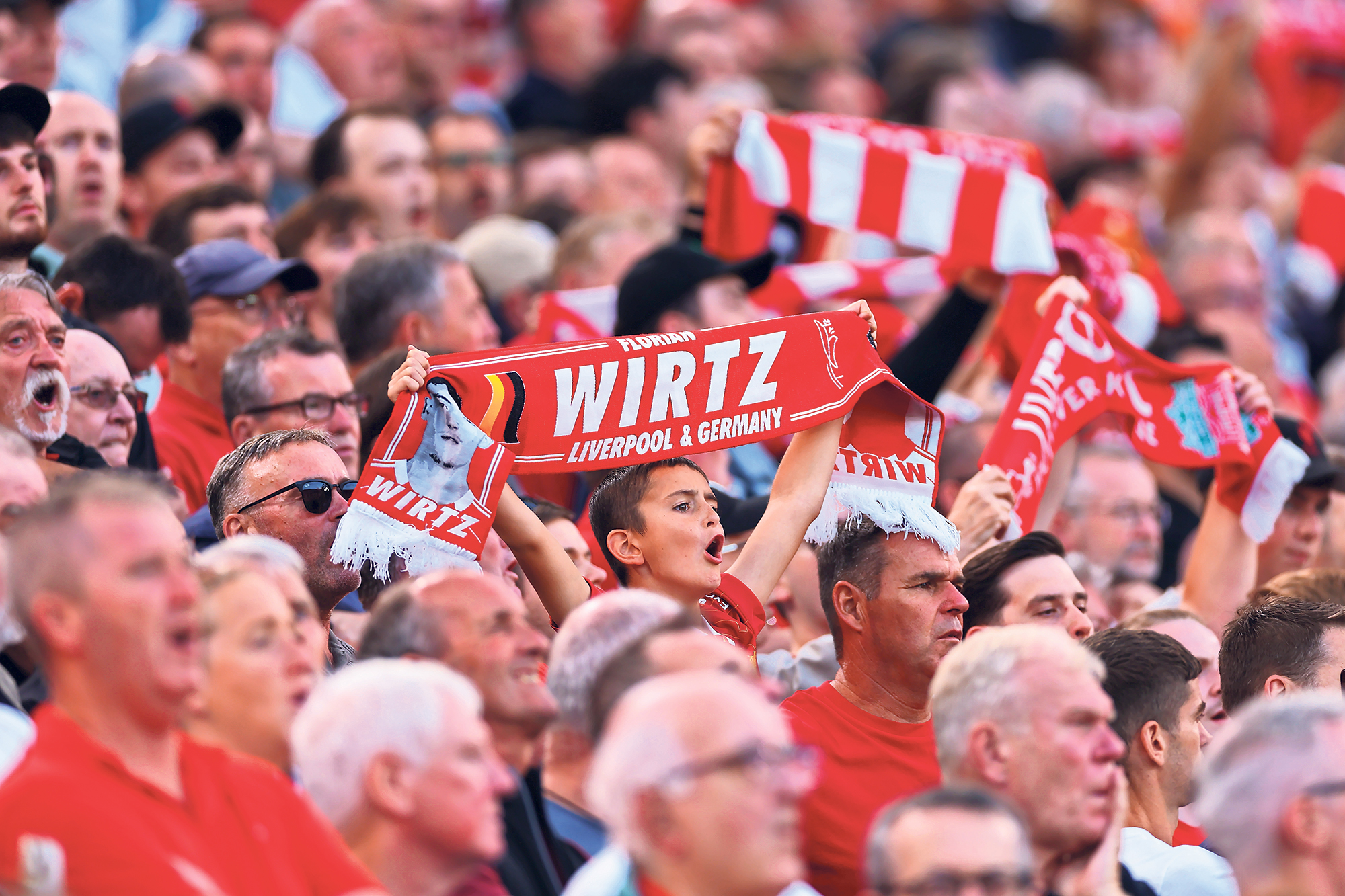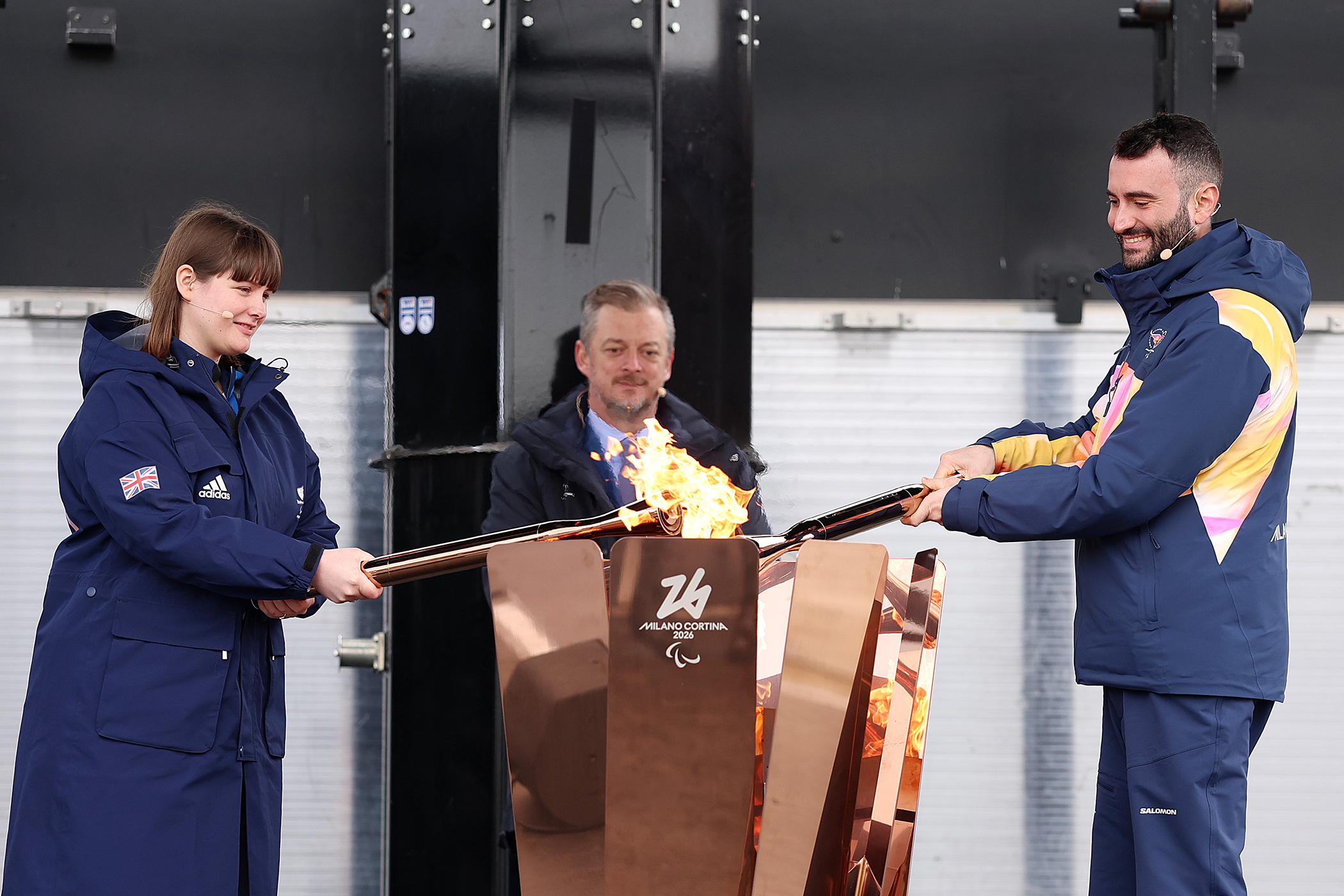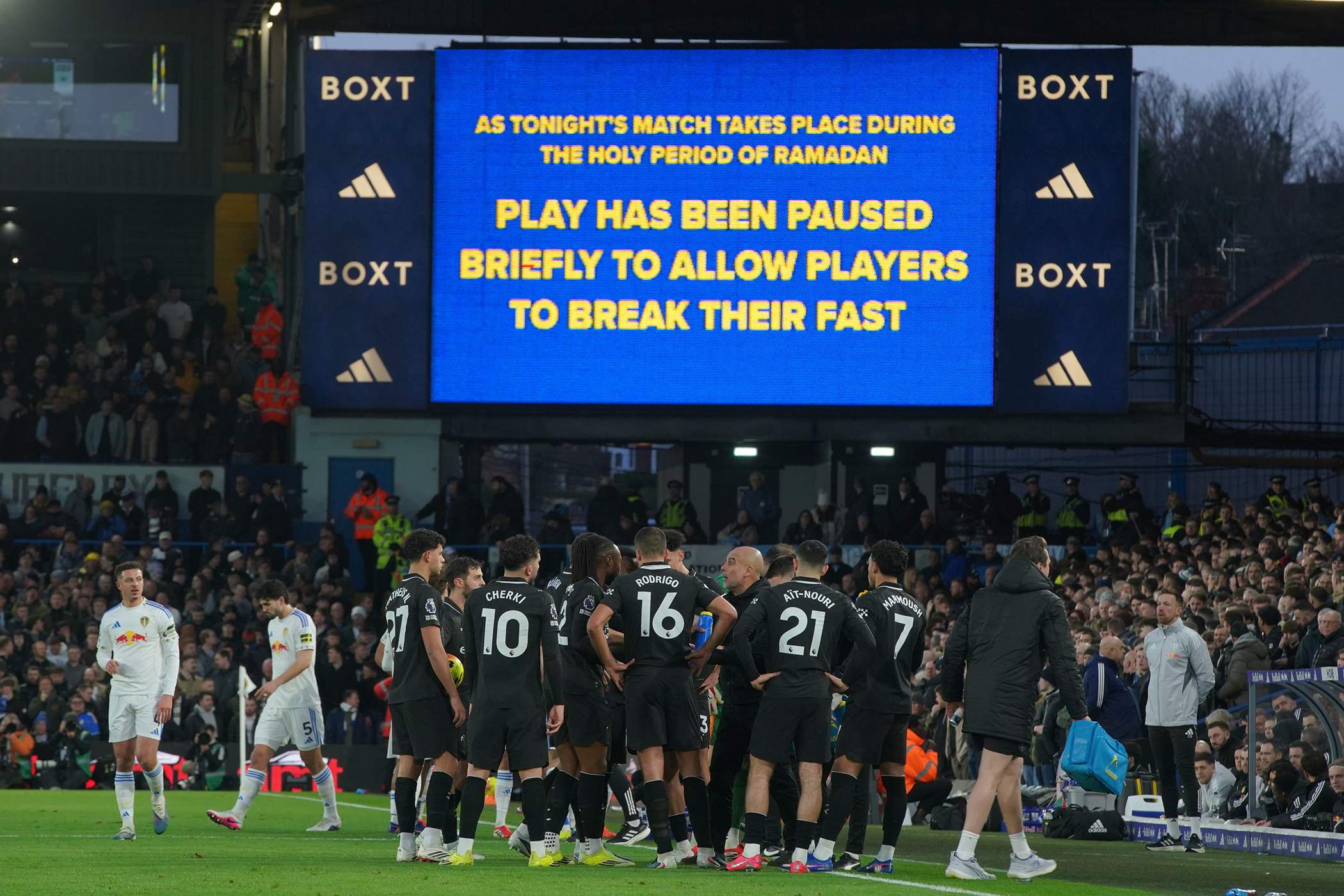The last time Manchester United came to Anfield, they left a lasting impression on Arne Slot. That game in January was not a lightbulb moment as such; the Dutchman did not experience a sudden revelation as he watched his Liverpool team toil and grind against their staunchest rivals. Rather, it served to confirm his suspicions, to crystallise a thought that had been forming for some time.
Ruben Amorim’s team, Slot said, had presented his players with two challenges they had struggled to overcome. First, United had “defended with a lot of bodies”, and Liverpool had found it “was not easy to play through the low block”. Second, when they did have the ball, the visitors had not “taken the risk of build-up, they played it long”.
Such is the hysterical state of the general discourse around the Premier League that Slot’s comments were largely interpreted as sour grapes, a churlish critique designed to excuse his own team’s failings, proof that the unflappable, amiable demeanour the Dutchman had presented to English football until that point lasted only as long as things were going his way.
Slot’s thoughts, though, were squarely on his team. The Liverpool manager tends to ruminate on disappointment. Even as his team built an unassailable lead at the top of the Premier League last season, en route to the title, he developed a habit of referring back to the one game he had lost, at home to Nottingham Forest in the fourth game of last season.
The 2-2 draw with United had a similar effect. He would return to the subject a few weeks later, in the aftermath of Liverpool’s defeat at Plymouth in the FA Cup. The (then) Championship side had played, he said, in much the same way as United: “A very low block, kick every ball long.” This was presented, again, as a “brutal dig” on Amorim.
Within Liverpool, though, Slot’s remarks were taken as he had meant them. His team had been winning games – they were six points clear with a game in hand at that point – but they were, he felt, not winning them well. Teams playing a similar style to United, in particular, were posing problems. Not only could Liverpool not play their way through, opponents who went long were not susceptible to their signature high press. “We’ve seen a few times already that it is a game plan that is difficult,” Slot said at Home Park.
The data bore him out. In the first half of last season, Liverpool scored 40 goals from open play. In the second half – admittedly warped by the fact that Slot’s team spent the last month of the campaign on a valedictory tour – that dropped to 27. It did not stop them getting over the line, but it did sharpen the thinking of the club’s hierarchy. As Slot had discerned months beforehand, Liverpool required radical change, whether they were champions or not.
Jack Grealish, by common consensus, has been one of the standout successes of the early Premier League season. Leaving Manchester City has revitalised the 30-year-old; in his early appearances for Everton, Grealish has rediscovered the instinctive, inventive brilliance that had once been his hallmark. He has “fallen back in love with football”; Everton have fallen in love with him.
Florian Wirtz, on the other hand, has endured a torrid start to his career on Merseyside. He has yet to show why Liverpool made him, briefly, the club’s record signing; Jamie Carragher, for one, has suggested he ought to be removed from the team until he finds his feet.
It is curious, then, to learn that – according to a statistic released by Opta – Wirtz and Grealish have created exactly the same number of so-called “big” chances for their teams across all competitions this season: 21. No Premier League player can match them.
Newsletters
Choose the newsletters you want to receive
View more
For information about how The Observer protects your data, read our Privacy Policy
The cases, admittedly, are not exactly the same. Wirtz has played 172 more minutes. Grealish did not cost £116m. Most importantly, Grealish has four assists and one goal, and Wirtz has none of either. (Although, as the Germany manager Julian Nagelsmann has said, the fact his team-mates have not finished the chances he has made is not, strictly speaking, his fault.)
But the contrast between the reality of Wirtz’s performances and the perception of them feels indicative of the duality of watching Liverpool this season.
There were moments, on the opening night against Bournemouth, when Liverpool looked irresistible, when it seemed obvious that the single largest transfer spend in Premier League history would shortly turn one title into a dynasty; in the first half of the Merseyside derby, in the second half against Atlético Madrid, Anfield cooed and purred not just at what it could see, but at what might be to come.
Liverpool are, in effect, two teams in one ... caught together in an awkward pubescence
Liverpool are, in effect, two teams in one ... caught together in an awkward pubescence
And then there have been moments when it has been just as obvious that changing half a team all at once, no matter how talented and expensive the recruits, is a painstaking, laborious process, when Slot’s team do not just look uncertain and vulnerable but self-immolating: yes, the defeats at Crystal Palace, Galatasaray and Chelsea, but also the near-misses against Bournemouth and Atlético.
Liverpool have played 11 games this season. All but one have been decided by a single goal. Eight of them have been settled, one way or the other, in the last 10 minutes. The margins, whether in victory or defeat, have been impossibly fine. They are, in effect, two teams in one: the new and the old, what they were and what they are trying to be, caught together in an awkward pubescence.
Amorim knows full well, of course, that Jim Ratcliffe’s timescale is not a realistic one. Earlier this month, Manchester United’s minority owner told The Times Business podcast that the Portuguese had to “prove he is a great coach over three years”. That is not, obviously, how it works. Amorim will keep his job for three years only if he is a great coach.
Slot, too, does not have the luxury of time. The scale of change he is trying to oversee at Liverpool is considerable. It is far more than just trying to bed in some new players. He is also attempting to change a system that has been in place for a decade or so, to switch the creative fulcrum of the team from right-back to No10, and to construct an attack that will carry the club into an era without Mohamed Salah at a time when Salah is still there.
He is doing it, too, after a summer in which Liverpool were likely the only Premier League team that had to invite grief counsellors to the training ground. Slot is a realist. He will know that, despite all of that, Liverpool are not permitted to be in transition. Clubs of this size, who have spent that much money, are not afforded fallow years.
Perhaps the greatest risk, though, is that Liverpool are running against the grain of the rest of English football. The style that prompted the club’s overhaul is now standard among most of their peers; the Premier League as a whole has moved towards the exact approach his side found so problematic last year.
Slot had seen that challenge coming. His belief, and the club’s gamble, is that their expensively-acquired individual talent will, at last, be able to meet it.
Photograph by Robbie Jay Barratt/Getty Images



